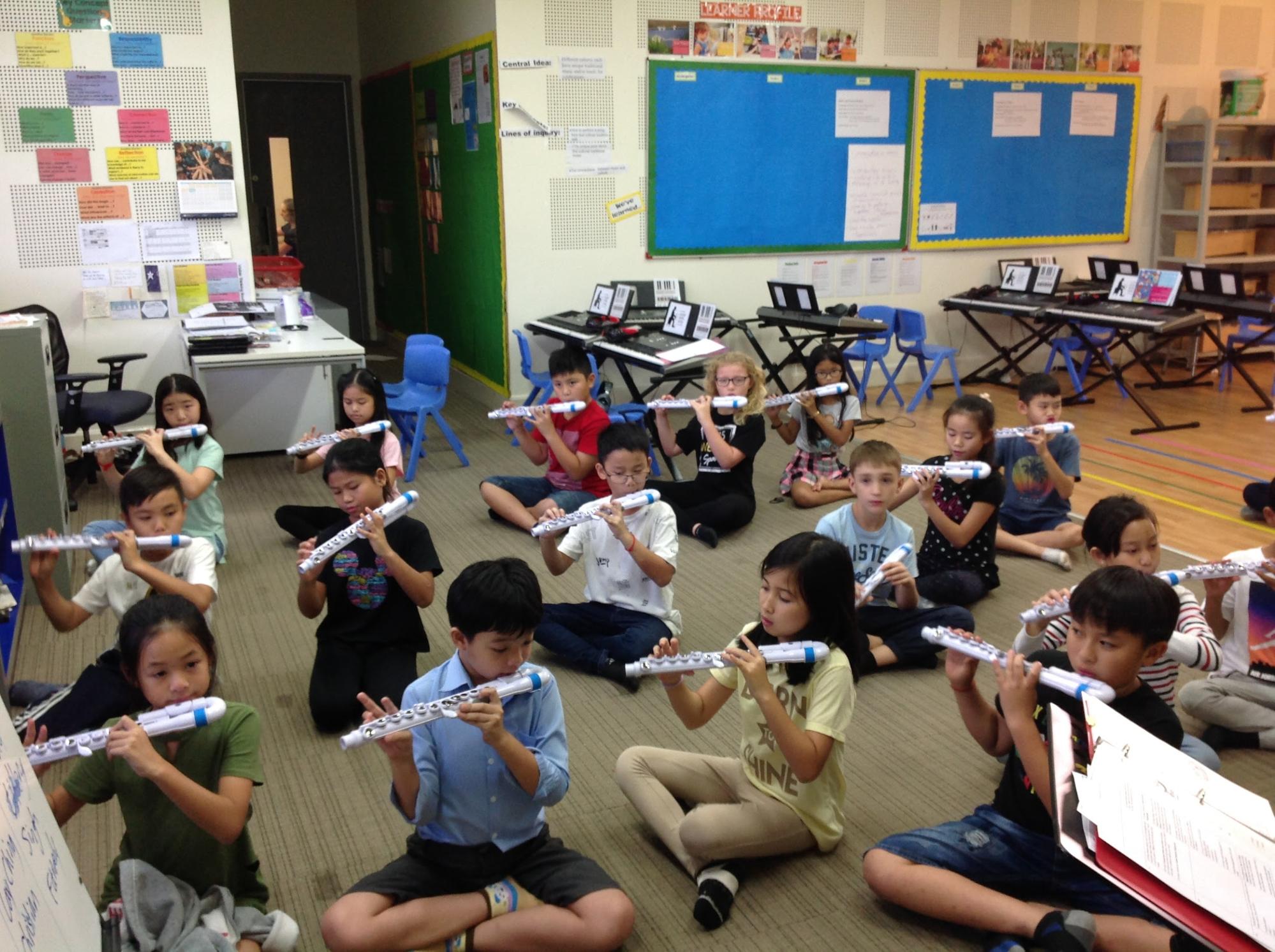We use cookies to improve your online experiences. To learn more and choose your cookies options, please refer to our cookie policy.
- Discover more
- Parent Essentials
- News
- Calendar
- Apply now
- Discover more
- Parent Essentials
- News
- Calendar
- Apply now

Secondary Korean teacher Ms Yunjung Kim explains why it's important for non-native English-speaking students to study their native language at Northbridge International School Cambodia.
Why is native language important?
It has already been proven by many researchers that the linguistic ability of the native language has a close relation to the development of cognitive abilities and learning abilities.
The linguistic sense that that is inherent in acquiring the native language also plays an important role in learning a foreign language. Recently the importance of native language in creativity has been recognized. Of all the major aspects of the native language, the most important part for parents and students living abroad is the emotional aspect.
Native language plays an essential role in establishing your identity.
History and culture is inherent in language. Learning the native language signifies learning the same history and culture of your parents, relatives, and even the generations before and after. The self-awareness that you belong to your native country gives confidence and stability. Grace Cho, a professor at CSU Fullerton, states that many second generation Koreans living abroad do not realize the importance of the native language until they experience internal conflict after they graduate and enter the workforce.
If you live in your native country, there are not many barriers to learning the native language, but what should you do if your parents stay or immigrate to a foreign country and you have to study at an international school? How should native language education be approached for these students?
Diverse approaches to native language are needed in the education system.
Northbridge International School fortunately has adopted the International Baccalaureate (IB) which encourages learning your native language. If a native language is not offered, there are options to study it through self-study programs. These classes are usually called Language A classes, and the country’s literary work that holds the essence of the native language, culture, and history are selected and taught. The IB Language and Literature Curriculum also enables students to learn not only about literary works but also about the popular music, movies, TV shows, podcasts, and videos of the native country to help understand the changes happening in the native country and the world. Also events like “Cultural Day” or “International Mother Language Day” encourage students to use their native language and take pride in their native cultures.
Although many school officials and teachers are making various efforts at school, there still exist students who have difficulty acquiring their native language. In most cases, these are students who have missed the window to learn their native language during the first few years of elementary school. It is important to teach the native language at home because many native language classes start to be offered in higher grades, and there are limits to the time the classes can take.
Native language education at home is crucial.
When teaching students, there are many cases where the time the student spent in their native country and the skill of their native language do not match up. This shows that the importance of native language education in the household is essential. If the student is in a lower grade, the parent should have everyday conversations in the native language and listen to songs, read books, or watch TV shows in their native language. Writing is necessary, but it must be done gradually. If the student is above third grade, the parents should provide an environment for the student to watch movies and talk, play soccer, or partake in religious activities in their native language. Everyday language is fundamental, but it is hard to learn a language in depth with conversational skills. When a student does not have problems in conversational speaking, the parents often think that the student is good at the native language. Just as living in your native country does not mean that everyone has great grammar knowledge, conversational skills do not indicate a thorough knowledge of the native language. To overcome these barriers, it is recommended to parents to play the native country’s news channel during breakfast or dinner time to give a chance to casually watch the news of their native country, encounter new words, and expose themselves to thought and debate. For parents to answer the students when they ask questions about their native country, the parents must also be informed about their native country. If possible, it is also recommended to use school breaks to visit their native country.
This is who I am!
If the student has already approached adolescence and strongly refuses to study native language, the parent should accept the fact. If learning is forced, it can create a resistance and only grow a repulsion towards their native country. Although native language is important, there are many forms of life. The reason I emphasize the importance of native language is in the hopes that the student will be able to live with self-regard and confidence. Therefore, it is not a tragedy for the student to not be adept in their native language. If the student is able to make the best choice in their given environment and lead their own lives, what else would be more important?
관련 참고자료
[기고] 이중언어 교육의 중요성
http://www.koreadaily.com/news/read.asp?art_id=1435763
[공감인터뷰] 모국어 교육이 왜 중요한가?
https://www.youtube.com/watch?v=GohvnR6bQZ4
Learning a second language? Develop your mother tongue | Shane Leaning | TEDxXiguanED
https://www.youtube.com/watch?v=w3yRR8rNCSc
5 reasons why it is important to know your mother tongue really well:
http://bitsindia.co.in/index.php/archive/5-reasons-important-know-mother-tongue-really-well/